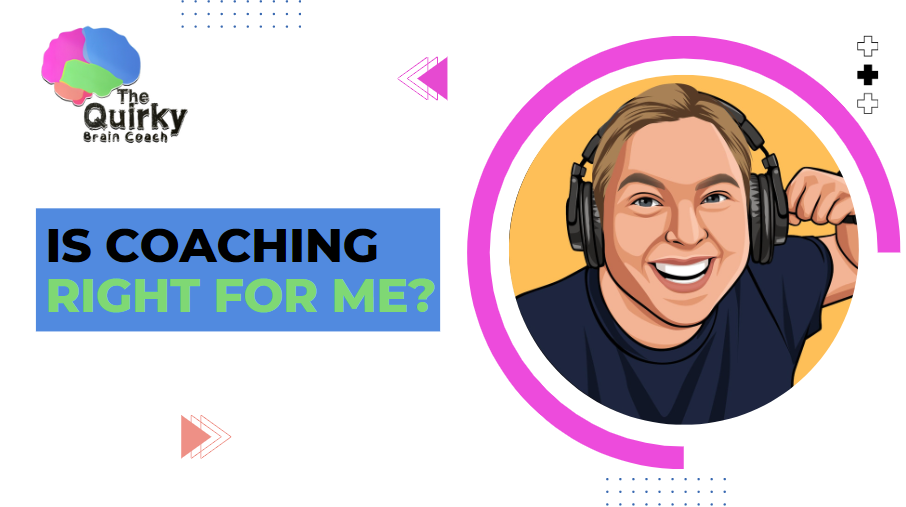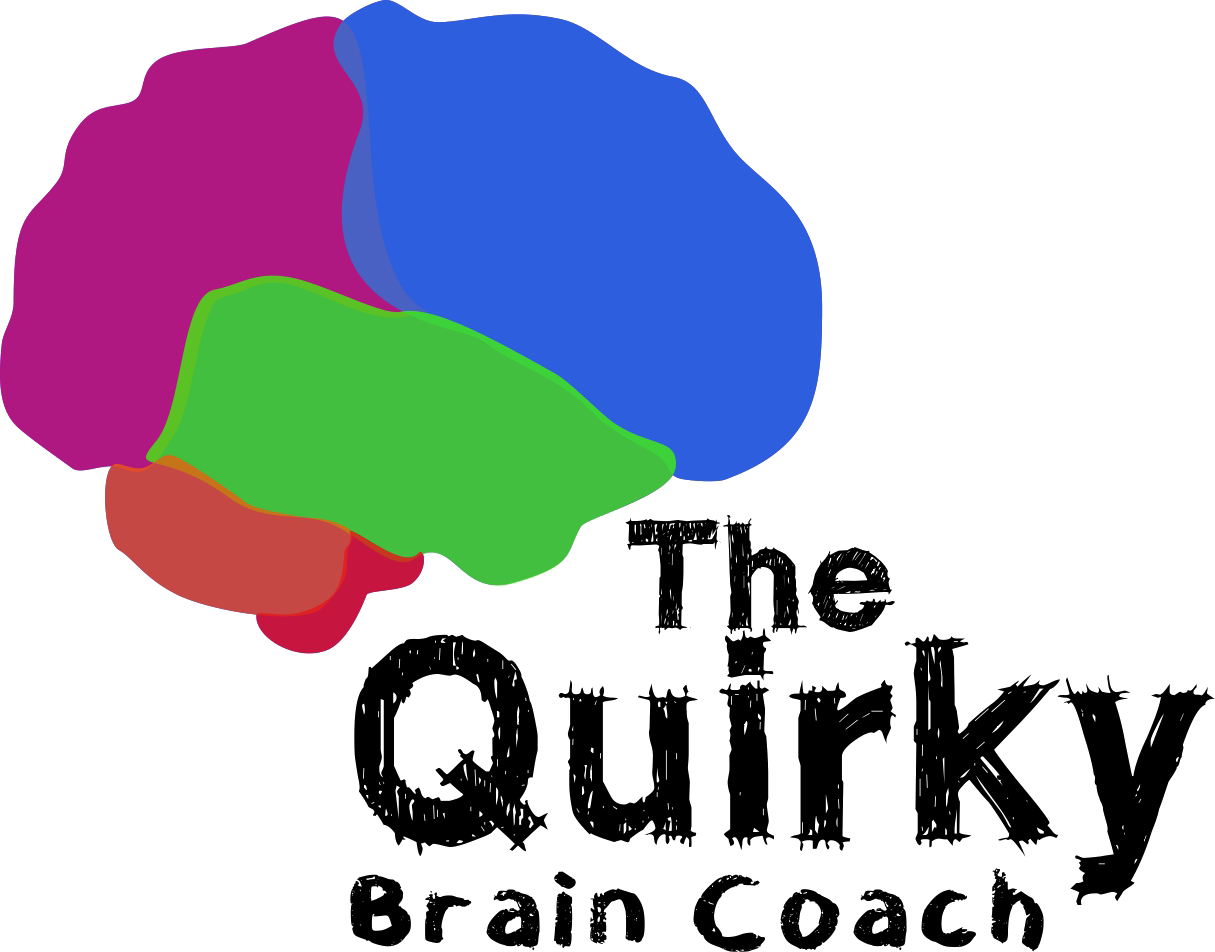Is coaching right for me, right now?
This post is to help you think about whether working with a coach is safe, appropriate and beneficial for you, right now.

Many of my clients are newly-discovered as neurodivergent. In other words, they find out later in life that they are autistic or have ADHD, for example. One of the supports that can be offered by organisations or schemes like Access to Work is neurodivergent coaching.
However, just because coaching is offered, it doesn’t mean that coaching is right for you or appropriate for you right now. For that reason, it’s important to think about what coaching is and isn’t, and to consider some factors that will help you to work out if it’s a support you could be engaging with right now.
First of all, I’d define coaching as a goal-focused and future-focused helping relationship and conversation. Coaches ask you where you are, where you’d like to be instead, and work with you to find pathways to your desired outcomes.
For example, you might decide that you’d like to learn how to create, embed and stick to a self-care routine to support your energy levels. That’s something you could do with a coach like me. I, as the coach, would work with you to understand why that’s important, what could get in the way, and the best way for you to create that morning routine so you actually have a chance of bedding it in – and feeling good about it along the way.
What coaching isn’t is therapy. It’s also not clinical work. Therefore, if you are in the middle of a burnout or very depressed or have an active trauma that you’d like to get urgent support with, it can be that, before coaching, you need to work with a different and better-suited kind of helping professional first.
This is to support your well-being and ensure you’re properly supported but, also, coaching may not work if there is an active mental health challenge that could stand in the way of your goals.
An example of this is that your desired goal could be creating that morning routine but, actually, you are currently quite unwell mentally and low on energy. As a result, you’re genuinely not able to try out some of the small tweaks and changes to your morning that would allow you to build the routine. Because you can’t do the things you’d like to in the coaching, you experience frustration and shame, and the coaching journey can actually be a source of unpleasant emotions and feelings about yourself.
In such instances, receiving support or treatment from a therapist or clinical professional might be necessary groundwork for becoming ready for coaching so that you are in the best shape to be able to get what you want from working with someone like me.
When clients reach out to me to ask about working with me, I always offer a free consult. Part of that consultation is always about gently and safely exploring your current mental well-being and your current “readiness” for coaching. I am trauma-informed and operate from a position of kindness and compassion, so I’ll always do this as carefully as I can, but it’s a short part of our initial chat that is worth having.
If we determine that I’m not the professional you need right now, I can refer you to other specialists who are better positioned to support you.
Other things I am checking for when we have our consultation are as follows:
Are you hopeful that things can be different for you in a few weeks’ or months’ time?
Do you feel like you have agency and autonomy? (In other words, do you have a sense that your desired coaching outcomes are within your control and you can choose them and influence them freely and confidently?)
Is change a positive and desired thing right now? Do you really want things to be different?
And, finally, even if you don’t yet know exactly how you’re going to get to where you want to go in coaching, are you open to trying some tweaks, hacks and realistic and doable small actions to see what could happen?
These are questions I’d bring up in the coaching…or at least I’d be looking for whether you’re showing the signs that suggest coaching is right for you right now.
So if you are wondering whether coaching is right for you or not, reflect on the questions I have posed for you above and if you’re answering “yes” or nodding your head as you read the questions, coaching could be what you need. That is to say, you’re showing the signs of being “coaching ready”.
I hope that this post has been useful in telling you what to think about when deciding whether or not coaching is right, right now. If you have any further questions or would like to book a consult, get in touch here!
